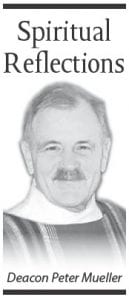“Teach me, Yahweh, the way of your will, and I will observe it. Give me understanding and I will observe your Law, and keep it wholeheartedly. Guide me in the way of your commandments, for my delight is there. Bend my heart to your instructions, not to selfish gain.”
(Psalm 119:33-36)
Walk into any bookstore, and you’ll find shelves and shelves of self-help books. There are books on how to find your dream job, how to attract a mate, how to find happiness in your life, how to win friends and influence people. As many as there are they have one thing in common: the claim to be able to help you change somehow.
The Bible is not usually advertised as a book that helps us change. But whenever God reveals himself through his word, people often re-evaluate their lives. When we read the Scriptures, God will reveal Himself to us. At times, he may challenge us to serve others or to spend more time with Him on a daily basis. Other times, He may point us to words of comfort for us or for a family member or friend. God wants us to read His word so that we can draw closer to Him and so that He can draw closer to us.
God wants us to know Him, He makes a deal with us. For our part all we have to do is sit down and read Scripture prayerfully. For His part, God will open our eyes and reveal Himself to us. We should read and listen to His word so that His wisdom can find its way into our minds. A prayer may help, “Holy Spirit, open my eyes and quiet my mind so that I will be able to discover your guidance and hope in the Scriptures. Let your words move within me.”
Here is a book…many people, of all denominations, use in prayer daily— The Liturgy of the Hours. The Liturgy of the Hours gives revelation of God’s Word to us throughout the day, an opportunity to read Scripture. These prayers have formed part of the Christians’ public worship from the earliest times. Christians of both Eastern and Western traditions (including the Roman Catholic, Eastern Orthodox, Oriental Orthodox, Anglican, and Lutheran churches) celebrate the Liturgy of the Hours. The early Christians continued the Jewish practice of reciting prayers at certain hours of the day or night.
The Liturgy is composed primarily of psalms and canticles that follow a four-week cycle, and it is prayed at specific times, “hours,” during each day. It has become the practice to recite Lauds (Morning Prayer) and Vespers (Evening Prayer). Morning prayer helps us consecrate the work of the day to God. Evening prayer concludes our day with intercessions for the People of God and then closes with the Our Father.
In the Psalms are found expressions like “in the morning I offer you my prayer”; “At midnight I will rise and thank you”; “Evening, morning and at noon I will cry and lament”; “Seven times a day I praise you.” The apostles observed the Jewish custom of praying at the third, sixth and ninth hour and at midnight.
The prayer of early Christians consisted of almost the same prayer as the Jewish prayer: recital or chanting of psalms, reading of the Old Testament, to which were added readings of the Gospels, Acts, epistles and canticles. The Liturgy of the Hours is a form of public prayer in the Church of Christians to praise God and sanctify the day. It is a means to nourish the spiritual life of the People of God.
A good daily habit to form.
Each month a member of the Cook County Ministerium will offer Spiritual Reflections. This month our contributor is Deacon Peter Mueller of St. John’s Catholic Church in Grand Marais.



Leave a Reply